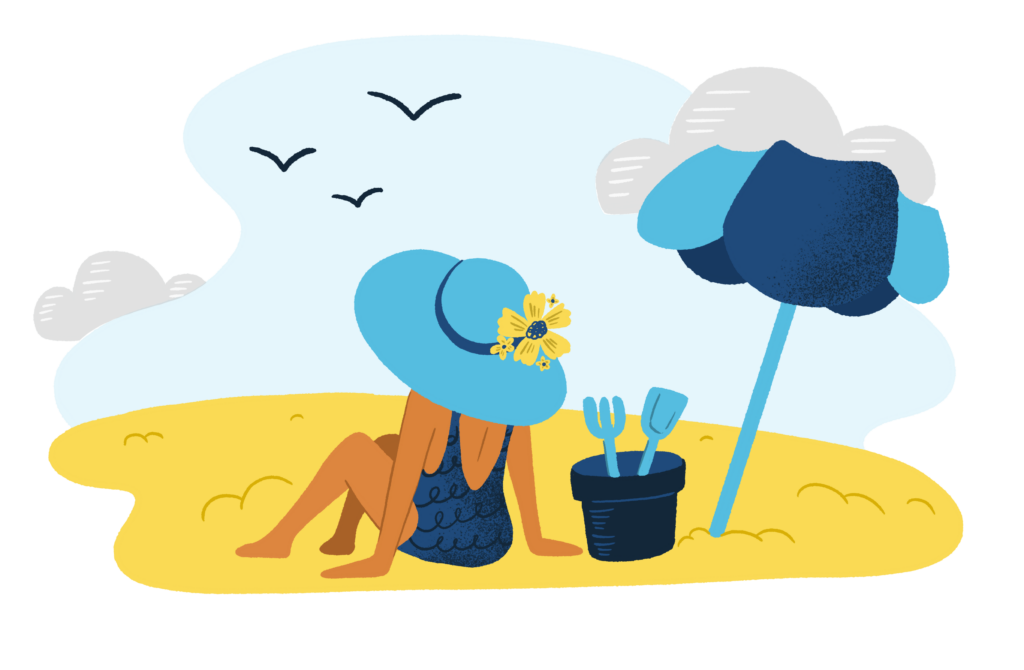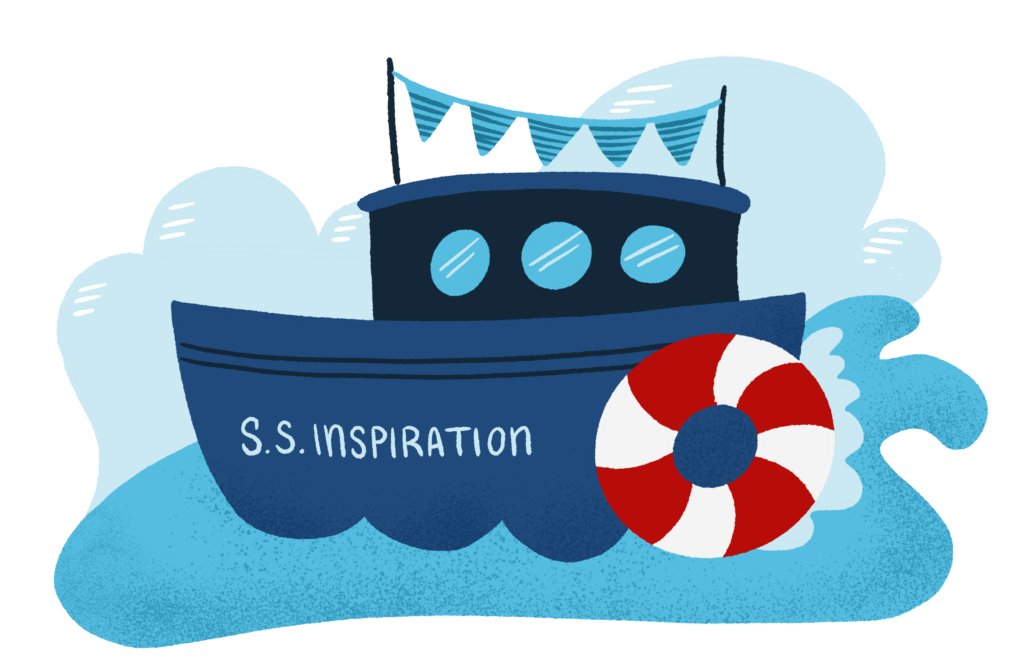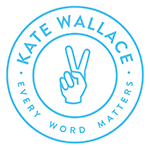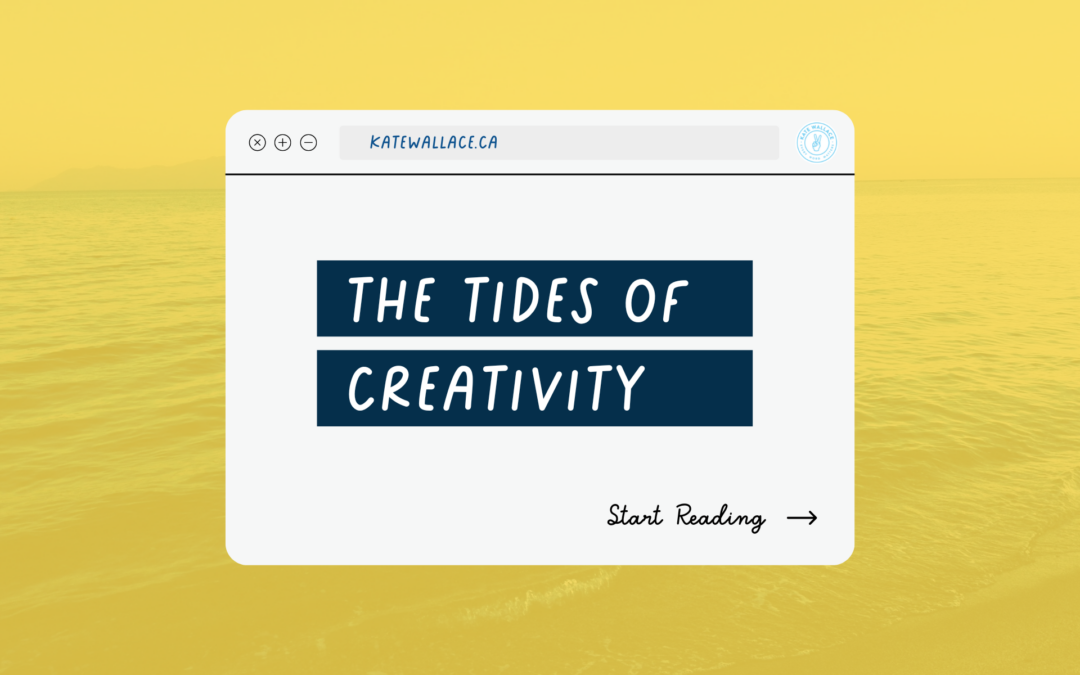Inspiration always returns
In the early aughts, I went to Australia to visit my sister, Jackie, who was having an adventure living and working down under. During our vacation, I mastered driving stick on the left side of the road, swam in a tea-tree-oil-infused river, and tried surfing for the first time.
In Byron Bay, an extremely beautiful and chill coastal town where perfect white-sand beaches bordered impossibly clear blue water, we signed up for a one-day surfing lesson.
It was a comedy of errors.
Our instructor, who was like an Aussie version of our Uncle Pete, nearly ran out of gas on the drive to the beach. Jackie’s friend Andrew got spiralling welts on his leg from an insane jellyfish sting, and I almost broke my nose when my surfboard cracked me in the face. Rookie mistake!
Despite the bumps, it was well worth it. After practicing the basics on dry land, we paddled out to put our raw technique into practice on the water. The first 20 or so tries, I fell off the board in every way imaginable: frontwards, backward, and sideways. But eventually, I caught a little wave, moved into position the way Aussie Uncle Pete had shown me, and got up on the board.
For a few blissful seconds, I rode that wave. I was surfing!
Sometimes, when all the forces align, writing feels like this; it’s like flying, just at a desk. This exhilarating creative flow state is one of the best feelings in life. And like all good things, including riding a wave, it doesn’t last forever.
Creative flow always feels extra hard to channel this time of year. I’m not alone in finding the grey, bleak days of late winter kind of a drag. Add the thorns and distractions of life—the exhaustion of the horrific news cycle, an overactive group text chat, a new job, grief, loss, love—can really pull a person away from the creative urge. Some days (weeks, months, years) it’s nowhere to be found.
As creative people with jobs and responsibilities, including writing for personal fulfilment or professional requirement, these distraction-filled times can be equal parts exhausting and fearful.
Working through a dry spell can feel like treading water: tiring and unproductive. Worse still is the worry that you’ll never get up on the board again, that your inspiration is gone for good, your well has run dry.
Ah, the well.
I’ll admit I don’t love this metaphor. It’s overused and inaccurate. Creativity never really disappears, but it definitely cycles. I prefer a more dynamic and personal metaphor: the sea, with its constant flux, depths, and ever-changing tides.
When the tide is high, and the ideas and words are flowing, I work. When the tide is out, and there’s nothing but a dry beach in front of me, I play! (Or at least stop reaching for my figurative surfboard).

Working Through The Ebbs.
Life is consistently inconsistent.
Just when we think we’ve got this, there’s a new twist or turn, and we’ve got to adapt and change. These jolts and shifts affect our creative energy. Some days, it’s just not there.
It’s not realistic to expect it to be “on” all the time. But our insane hustle culture makes it hard to prioritize rest and downtime, especially if we’re worried our best work’s behind us, that our creativity is gone for good.
In these times, which can be disheartening, remind yourself that it takes enormous amounts of energy not only to have an idea but to execute it!
If your inspiration is ebbing the least productive thing you can do is fight it or feel guilty.
Instead, use this low-tide time to rest and take stock. Do the quiet background work of writing, such as reading and talking to people who light you up. Investigate the flotsam and jetsom left by your last high tide, those scraps of ideas that might find a place in your next project or piece of writing.
Who knows? It might even lead to the tide returning sooner than you expected.

Go With the Flow.
The creative flow state is pure magic, as you lose track of time and space as you dive headfirst into your project.
As I mentioned above, though, it is also fleeting.
Flow is elusive. But you can create the conditions to invite the return of your next creative flood.
First, prioritize your process. Eliminate as many distractions as possible from your writing time and space. It has to be just you, floating alone, deep in the ocean of your thoughts, feelings and imagination.
Enact a gentle discipline. Even just 10 or 15 minutes of no-pressure writing a day can lure your muses back from vacation.
Inspiration is only a fragment of what goes into creating something amazing, just like surfing takes more than just a wave. You need a board, a lot of balance, and enough strength to swim out.
The more you practice your craft in uninspiring moments, the more prepared you’ll be to catch the next wave of inspiration.

Prioritize Play.
We can’t control the ocean. And we can’t control creativity’s natural ebbs.
When the tide goes out, and your ideas dry up, don’t panic.
Play.
Schedule a bit of time for fun every day.
This may be physical play, such as a bike ride, a tickle fight with your kids, or digging in the garden. It can be a board game or a puzzle. Crosswords are a personal favourite for me. It could be something cultural that fills your cup, like seeing a play or concert.
You do you.
Just remember that the definition of play is something that’s done for its own sake. Getting a fast weeknight dinner on the table is not play. Taking a Saturday afternoon to master a new recipe from a beloved cookbook for pleasure is.
This playtime can have social, emotional and physical benefits. And it can help draw the tide back in.



